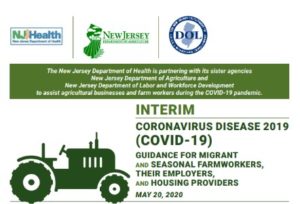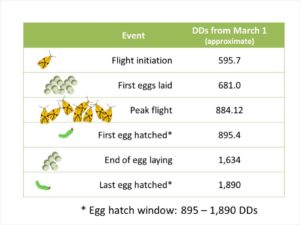Peach:
Oriental Fruit Moth: We are between generations 1 and 2, with the first insecticide applications having been just applied in southern counties, and in northern counties due by the weekend. The second application will be due the following week. [Read more…]


